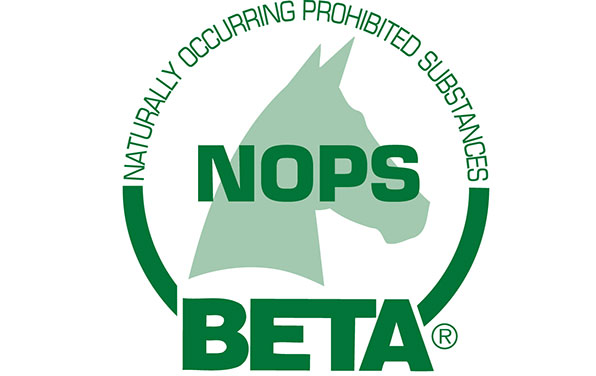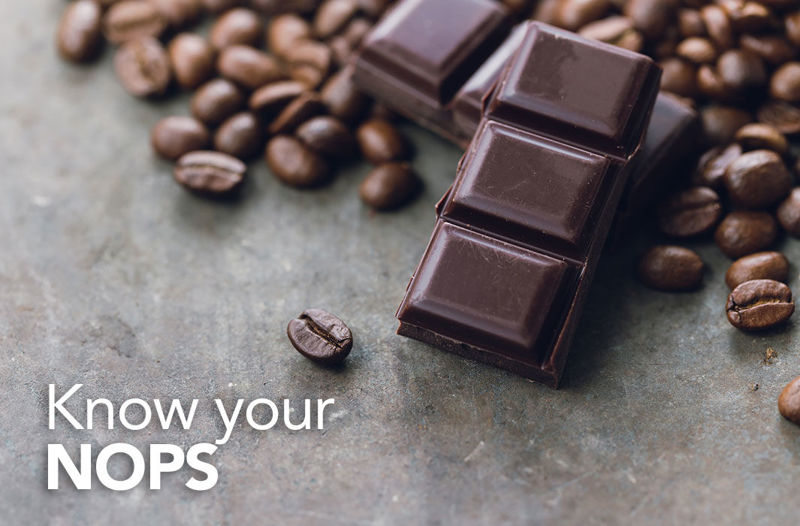Naturally occurring prohibited substances or NOPS, are substances either naturally present within ingredients or occur as a result of cross contamination during processing.
BETA (British Equestrian Trade Association) set up a scheme in 2009 aimed at reducing the risk of NOPS in equine feeds. Look out for the BETA NOPS logo on our packaging as this assures that the products it appears on are NOPS compliant.
Why do you as a rider need to be aware of NOPS?
When competing under rules, whether that is FEI, BHA, BD, BE, BS or any competition which has a governing body, there will be rules as to what substances are allowed / not allowed within your horse’s diet as some of them, particularly those that are identified as NOPS, could be classed as ‘Performance Enhancing’. If you compete under rules at any level, it is important to know that what you are feeding is permitted as this could cost you your qualification and prize money.

Examples of NOPS:
The main NOPS and their sources are:
- Caffeine – Chocolate (cacao), Tea, Coffee
- Theobromine – Cacao
- Theophylline – Tea
- Morphine – Opium Poppy
- Hyoscine – Nightshade Plant
- Atropine – Nightshade Plant
- Cannabinoids – Hemp fibre and plant material
How can you reduce the risk of NOPS in your horses’ diet?
It's easy to reduce the risk of NOPS occurring on your yard by setting out some simple rules. The first one is to ensure that everyone on the yard knows the possible sources of contamination and is aware of what NOPS are and how they could affect you and your horses when out competing.
Easy tips to help you stay free of NOPS:
- Don’t eat or drink in the stable or feed room – simple things like coffee and chocolate can pose a big risk
- Wash hands after eating and drinking
- Do not feed titbits of human food to your horses
Medication
Medication management is also vital as a lot of medications are not permitted for use during competition. If you have a horse on your yard that is receiving medication, ensure that you are:
- Keeping all medications in a safe and secure location
- Using separate buckets and feed stirrers for horses that are on medication to avoid cross contamination
- Washing your hands thoroughly after treating a horse that is receiving medication
Feed right
Correct feed management is also important to reduce the risk of NOPS and is often an area that is overlooked by horses’ owners. To reduce the risk, you should:
- Buy feed and supplements with the BETA NOPS logo on the packaging
- Beware of claims made by companies not registered with the BETA NOPS scheme
- Keep only horse feed and supplements in the feed room, do not store any other animal feed or medications within the feed room
- Clean feed buckets thoroughly after use and avoid using the same stirrer to mix more than one horses feed
Regulation
Companies using the NOPS logo are audited yearly to ensure that they are complying with the NOPS code of practice. Members must evaluate the risk of NOPS contamination during each step of the manufacturing process which includes the sourcing, storage, transport, and processing. Suppliers of raw materials are audited on a regular basis and staff undergo rigorous training.
At Feedmark we take every care to ensure compliance with NOPS. Like other BETA NOPS members we undergo a lengthy audit every year to ensure we are compliant with the requirements of this important code of practice which affects all areas of our business. When you buy a Feedmark product you are buying a product made with quality ingredients bought from compliant suppliers. Look out for the NOPS logo on our product labels.













